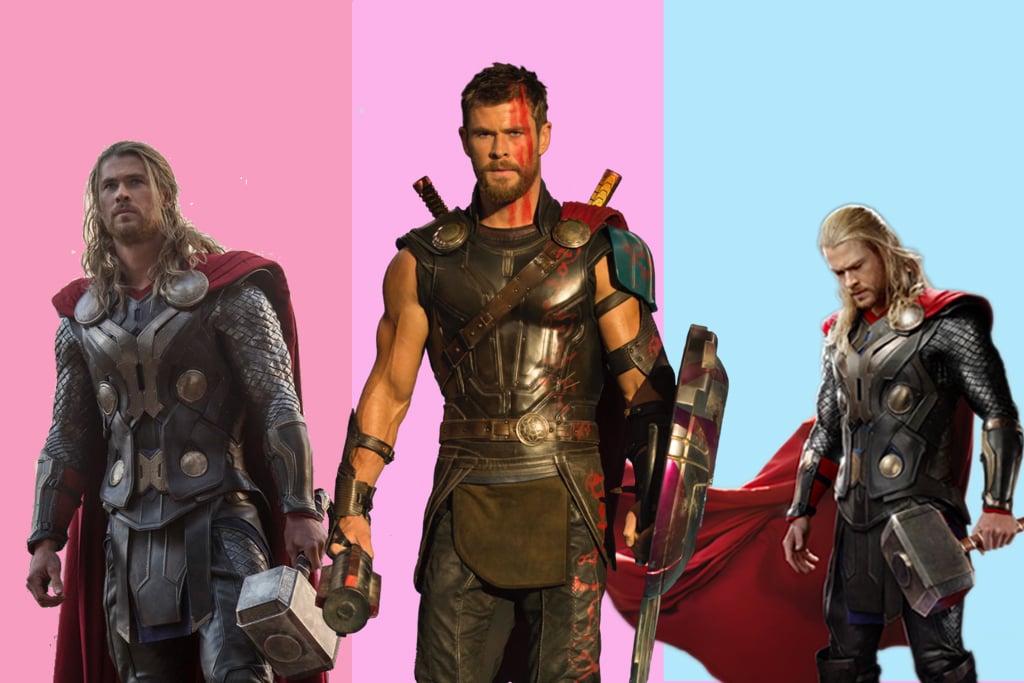Is ‘Avengers: Infinity War’ Any Good Or Nah?
Has the 10 year wait paid off?
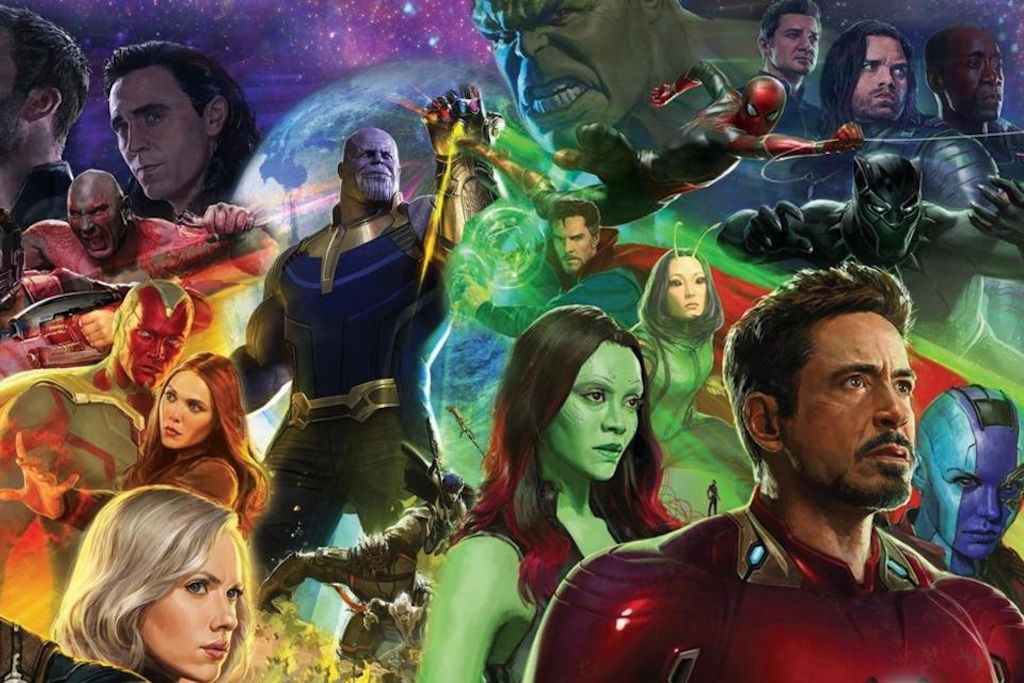
In 2012, the same year The Avengers was released, The Wire creator David Simon sat down with The New York Times for what is now a legendarily prickly interview. In it, he railed against recap culture, and against bloggers rushing to review episodes piecemeal.
“They don’t know what we’re building,” he said. “It doesn’t mean anything until there’s a beginning, a middle and an end.”
Oh, to be able to hear his thoughts on the Marvel Cinematic Universe in 2018.
Now on its 10th year and its 19th film, the MCU is less of a serpent eating its own tail and more some sort of serpentine leviathan, with all of us clinging onto its tail as the beast coils out of sight beyond the horizon — into infinity, even.
And whether you agree with Simon or not, the MCU’s propensity for expansion — as universes are wont to do — isn’t just making it difficult to judge the merits of each film, it’s starting to make it hard for those films to actually tell a story.
The Good Bits
Let’s back up a second. The Marvel films have been a blast, with very few exceptions, and Avengers: Infinity War is certainly a lot of fun. It’s still a giddy delight to watch these characters we have grown to love, and have loved as they have grown, bounce off each other in new and different ways.
For every fresh friendship, there’s another we can’t wait to see patched up, or a long-awaited reunion mercifully moving forward without a recap. It’s a very funny and frequently exhilarating film, and it’s generous with those moments that send a chill down the spine of everyone who’s been along for the ride.
That said, this is very much Thanos’ movie, so it’s a good job that he’s great. He’s not prone to quips or pontification, just machinations as nimble as they are deliberate. Watching him in battle is like seeing an oil tanker somehow turn on a dime — nothing that big should move, or think, that fast.
More than this, there’s something forlorn and almost innocent about Thanos — Josh Brolin imbues him with a well of sadness that extends far deeper than mere rage ever could. His relationship with foster daughter Gamora is twisted and sickeningly sweet — affection and abuse rolled so tight it’s hard to tell where one stops and the other starts.
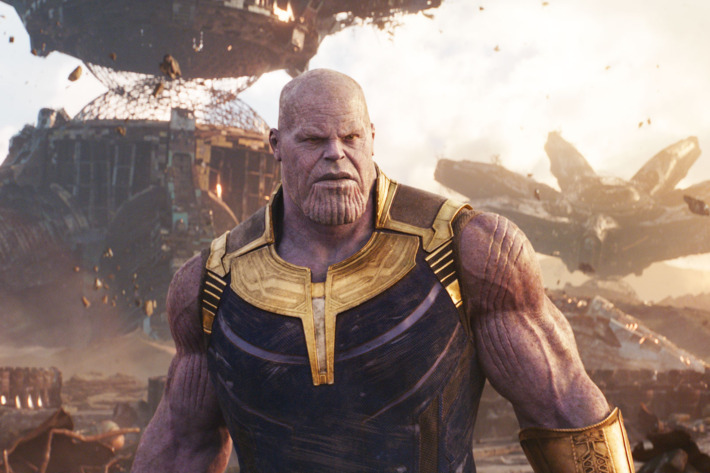
The big scary thumb man.
There are some excellent turns from the (ridiculously stacked) cast, too. Tom Holland’s Spider-Man has some of that same innocence that only a teenager can, leaping between inspiring affection and enthusiasm and irritation and heartbreak.
As Gamora, Zoe Saldana distils the aching conflict of being caught between a sister and a lover and a father and the fate of the galaxy into something potent and true. Chris Hemsworth’s Thor continues his reign as the MCU’s most improved player. And Black Panther fans will be delighted to hear that Danai Gurira is as badass as ever, and has upgraded her repertoire of death stares to include one that is bound to last all eternity in the amber of memeification.
Also, we have to take a minute to appreciate just how unthinkable this would have been in 2008. There are 40-odd actors credited here, many of them Serious Thespians with all manner of awards, and they’re here for an Avengers film.
And not just any Avengers film — one in which Star-Lord can call out Rocket Raccoon’s real motivation for going off on a quest with Thor instead of facing the enemy. It speaks to how much these characters know and understand each other, and how much we know and understand them.
The Not-So-Good Bits (And Some Spoilers)
In the comics, Thanos wants to destroy half of all life in the universe because he is deeply besotted with the Marvel Universe’s anthropomorphic representation of Death. It’s such a magnificently comic-booky motivation — a love doomed by definition, a plan vast in scope and consequence hinging on the very human quality of unrequited affection played out between two inhumanly powerful beings.
In Infinity War, Thanos’ motivation seems to be an unhealthy obsession with Malthusian checks. He wants balance in the universe because there aren’t enough resources to go around, apparently. Which is well and good, but there’s not a lot of reason given for this cosmic paean to ecology and demography (especially when there’s an absolutely tremendous canonical goddess of death already on screen in Cate Blanchett’s Hela).
“Infinity War tries as hard as it can to tell a whole story, but sometimes it feels like it’s not even half of one”
This lack is what separates Thanos from the likes of Black Panther villain Erik Killmonger — his motivation was central to his character, while Thanos’ still remains murky.
Maybe there’ll be more explained in the sequel, still-unnamed because it’s apparently a massive spoiler. But this is part of the problem, too — Infinity War tries as hard as it can to tell a whole story, but sometimes it feels like it’s not even half of one.
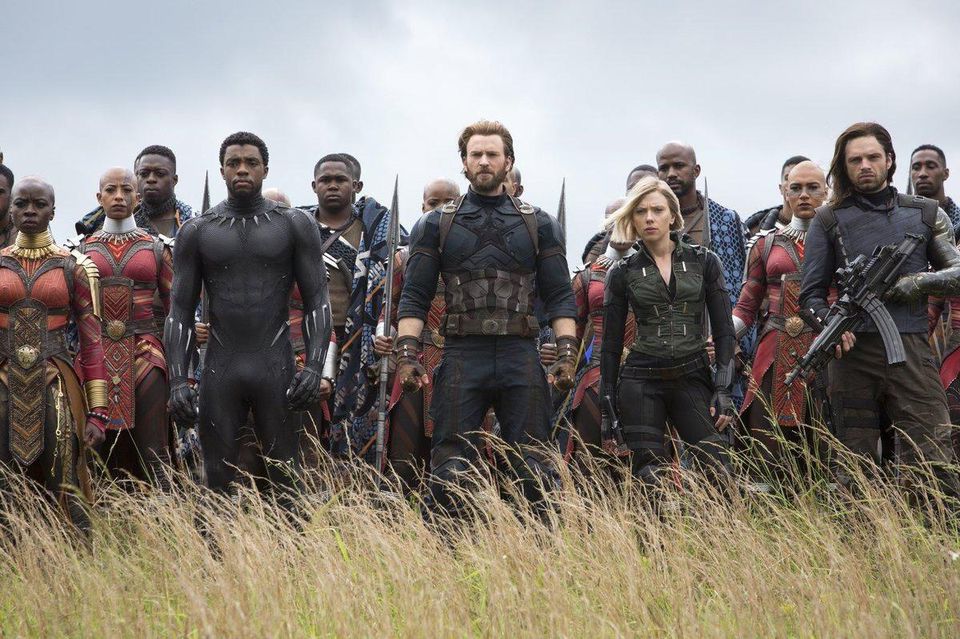
Whole team fucking here
Maybe we’ll get more of Thanos’ backstory. Surely we’ll finally get Cap and Iron Man working out their differences, because it still hurts that they’re fighting. But how can a film with universe-ending stakes have gravitas when the MCU has films scheduled until 2022? How can we get upset over deaths of fan-favourite characters when we know exactly when their next film is coming out?
A caveat: this is not necessarily a complaint. Marvel rewrote the rules with Iron Man in 2008, and again four years later with The Avengers. None of us know where they are going, and much of this confusion comes from a burning desire to know what happens next. These characters have so many more tales to be told about them.
But the conflict between profit and story that is at the heart of the MCU’s sprawl has created two pressure points: first, that there is a hell of a lot riding on the sequel to Infinity War, not least of which is the importance of actually having an ending. Chapters end. Episodes end. Films end. It’s wonderful to move on, to hint at the future, but you have to stick the landing before you can take off again.
And the second, more bizarre outcome? Read on, true believer.
Who Lives, Who Dies, Who Tells Your Story
One of the weirdest things to have come out of the anticipation for Infinity War is a quite ghoulish subcurrent of discussion about who will bite the dust in the film, followed by a quasi-religious imprecation against spoilers.
Seriously, it’s the second result on Google when you type in “who”.
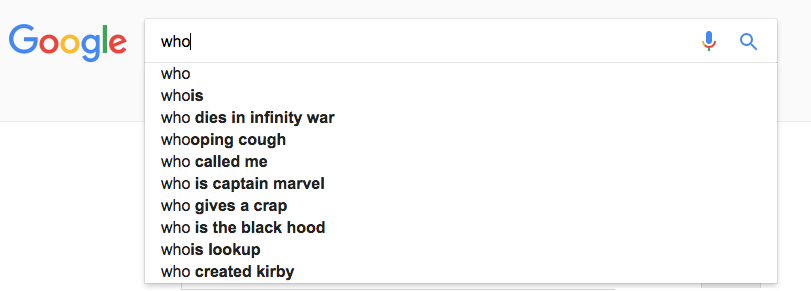
“Whois” doesn’t count
One of the biggest advantages that the celluloid versions of the Marvel characters have is that they are played by real-life human beings (well, mostly), who age as the films unspool in real time. It’s been 10 years on and off screen since Tony Stark found himself trapped in a cave with shrapnel moving steadily closer to his heart.
Sure, two roles have very obviously been recast, but the bulk of these characters are so closely linked to the actors who play them that it would be very difficult to see someone else in the role. We know that actors are getting older or talking about finishing up their contracts, we know there are still films to be made, so it seems like the only way to draw a line under a character or an arc or a story is with an appropriately significant demise — which doesn’t make it any less macabre.
Yes, the MCU’s sprawl is partly responsible for this. But, flaws and all, Infinity War never loses sight of what the MCU has so carefully set out over the past decade — that while these heroes can shake off most injuries, they are not at all immune to getting hurt. Betrayal is sharper than a knife in the side, money cannot erase guilt, strength doesn’t give you the power to fit in, and farewells can be utter agony.
This is what separates the Marvel characters from DC’s pantheon of gods — under the tights and the masks, they’re a lot like us. And maybe, if we stop being so concerned about which characters a writer or director has to slay, we might stop to think what this level of bloodthirstiness has to say about ourselves.
Come on, Russo brothers. Take us home.
—
Hari Raj has worked as a journalist and editor in Malaysia, China, and Australia. He tweets about pop-culture ephemera at @jarirah.
